Iranian President-elect Raeisi stresses need for end to foreign meddling in regional ties in talks with Qatari emir
Iranian President-elect Ebrahim Raeisi has underlined the need for an end to foreign interference in regional affairs, stating that collective security and stability will be ensured once such an ideal realizes.
Speaking in a telephone conversation with Qatar’s Emir Sheikh Tamim bin Hamad Al Thani on Thursday night, Raeisi called for further promotion of Tehran-Doha bilateral ties.
He said collective security constitutes a key part of his incoming administration’s regional foreign policy doctrine, which can bring about peace and stability to the regional states and tranquility and prosperity for the nations.
Raeisi said the next Iranian administration will attach paramount significance to neighboring countries in its economic diplomacy, describing strong connection between political ties and economic interactions in Iran-Qatar relation as a good model for regional trade convergence.
Raeisi also emphasized that collective stability and security can be achieved once foreign interference in regional affairs comes to an end.
The Qatari emir, for his part, congratulated Raeisi on winning the Iranian presidential election. He lauded Doha-Tehran relations as distinct and excellent and hoped for further promotion of ties between the two countries.
Al Thani also praised Iran's strong support during the rancorous Saudi-led embargo against his country, especially the effective role played by Raeisi as the Chief of Iran’s Judiciary.
“We have overcome difficult conditions, and must now stand together and help each other out,” the Qatari monarch pointed out.
In early January, Saudi Arabia, the United Arab Emirates, Bahrain and Egypt signed a declaration on the eve of the GCC leaders’ summit in the ancient desert city of al-Ula, to ease a rift with Qatar, signaling the end of a three and a half year embargo of the energy-rich Persian Gulf country.
In June 2017, the four countries accused Qatar, among other things, of supporting “terrorism” and having close ties to Iran, and severed economic and diplomatic ties. A blockade was also imposed by the four countries by land, air and sea.
Qatar repeatedly denied the claims and said there was no justification for severing relations.
Iraqi PM to visit Tehran once new government is formed
Meanwhile, Iraqi Prime Minister Mustafa al-Kadhimi announced on Thursday evening that he will travel to Tehran shortly after the formation of the next Iranian administration.
The official Iraqi news agency reported a few days ago that the Iranian president-elect had invited Kadhimi to visit Tehran.
Kadhimi, along with Iraqi President Barham Saleh, was among the first foreign officials to congratulate Raeisi on his victory in Iran’s presidential poll.
Raeisi, the incumbent Judiciary Chief of Iran, won the June 18 presidential election by a landslide.
At a presser on Saturday, Interior Minister Abdolreza Rahmani-Fazli said out of a total of 28,933,004 votes cast in the presidential election, Raeisi garnered over 17.9 million votes, followed by Mohsen Rezaei who secured 3.4 million.
Nasser Hemmati garnered 2.4 million votes, and Amir-Hossein Ghazizadeh-Hashemi won almost one million votes.
Putin’s aide praises Iran’s ‘competitive’ technological achievements
VIDEO | Brussels exhibition exposes Western-backed genocide in Gaza
20,000 patients stuck as Gaza demands full operation of Rafah crossing
Iran FM heads for Switzerland for indirect talks with US
Israel approves de facto annexation of West Bank; Hamas calls move ‘null and void’
‘Iran’s deterrence makes US think twice before taking any action’
Orban warns EU poses direct threat to Hungary’s sovereignty
Any confrontation with Iran will teach Trump a 'harsh lesson': Top general


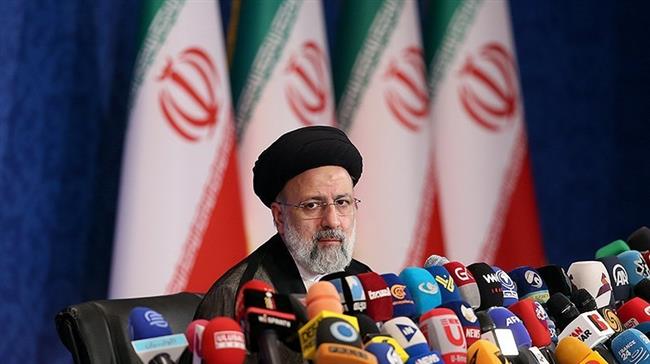
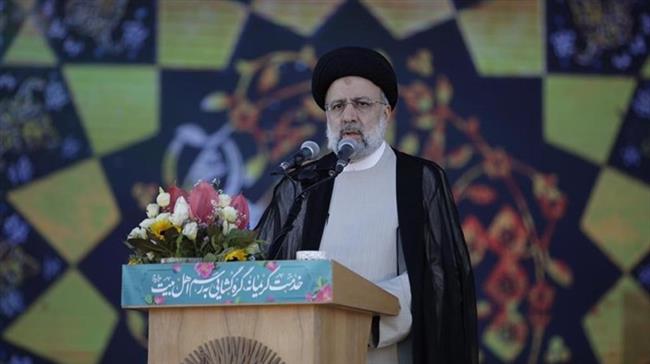
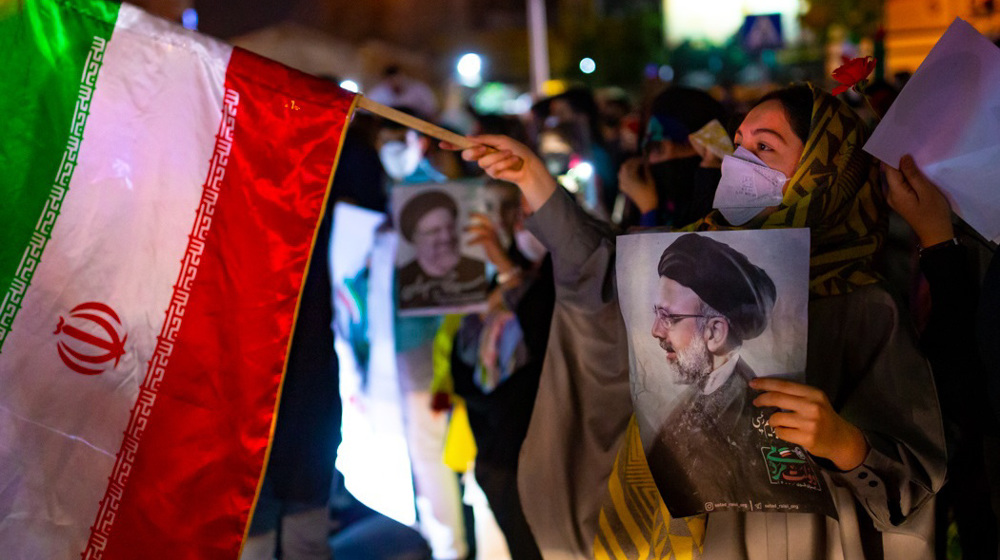
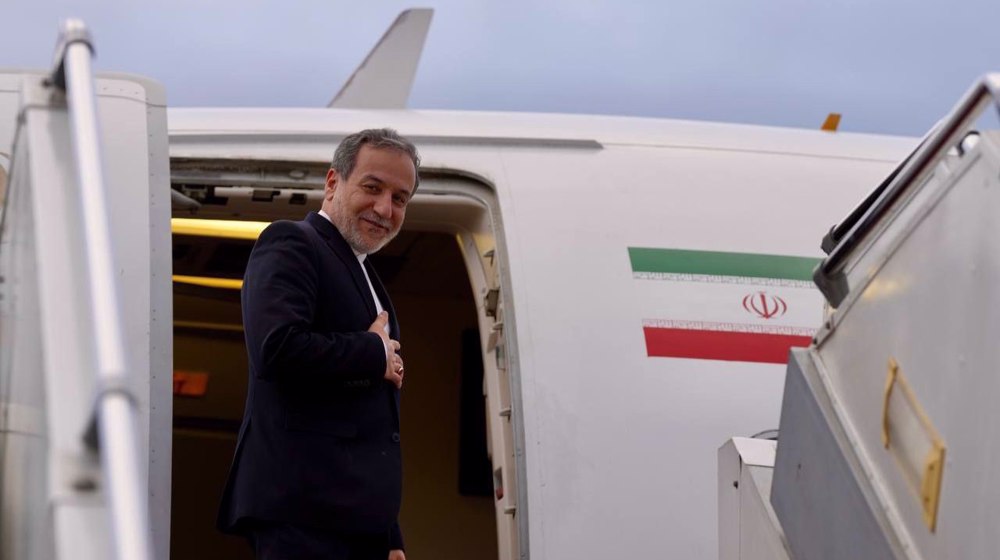
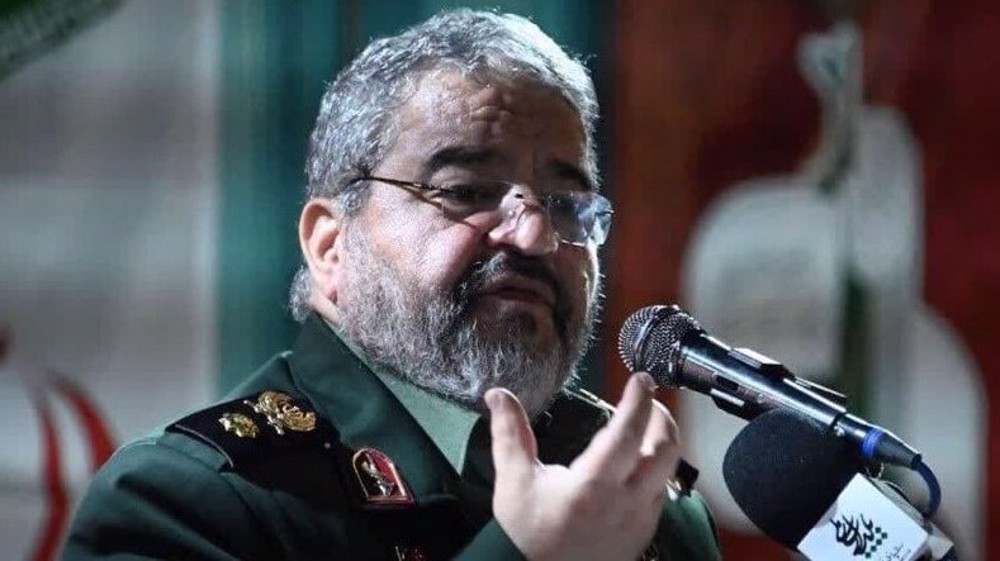
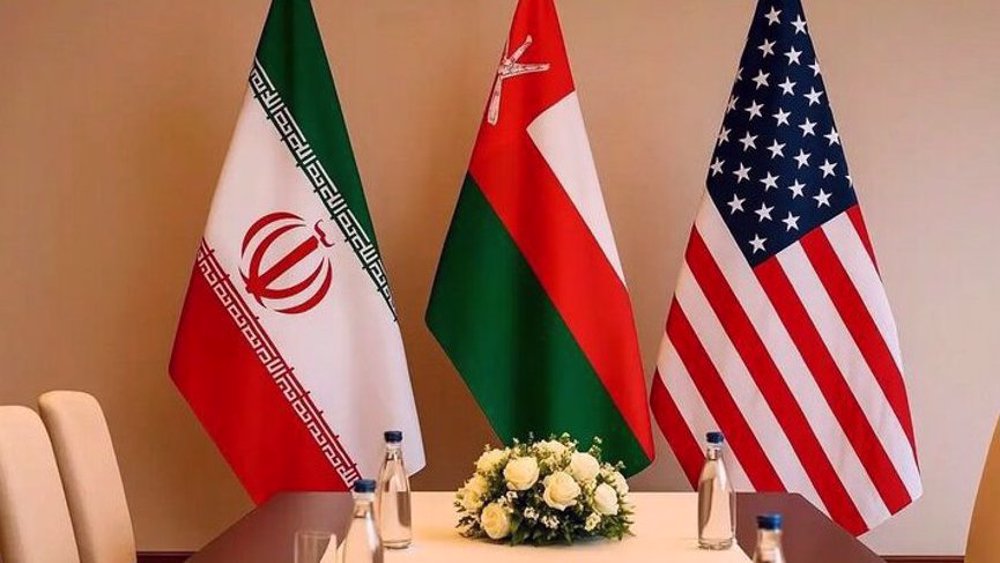



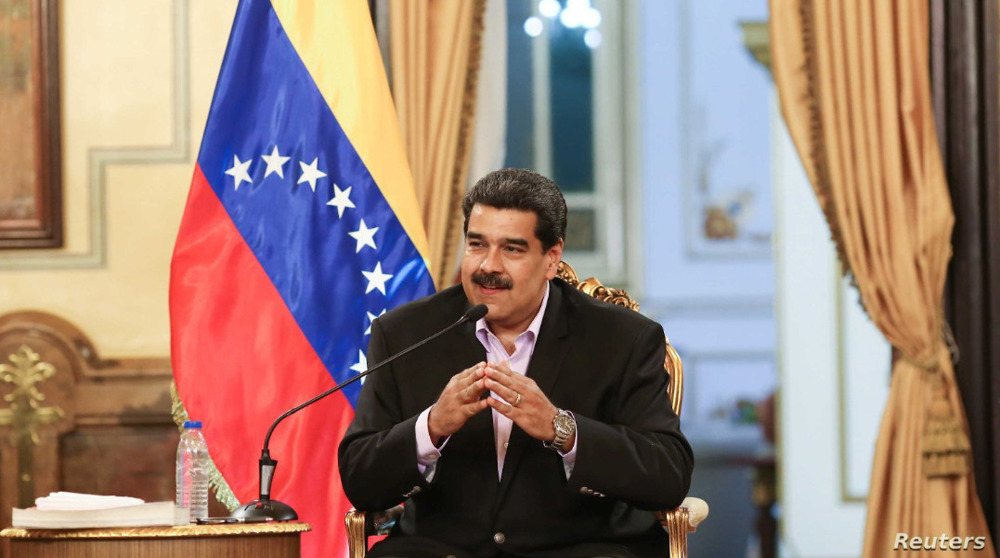
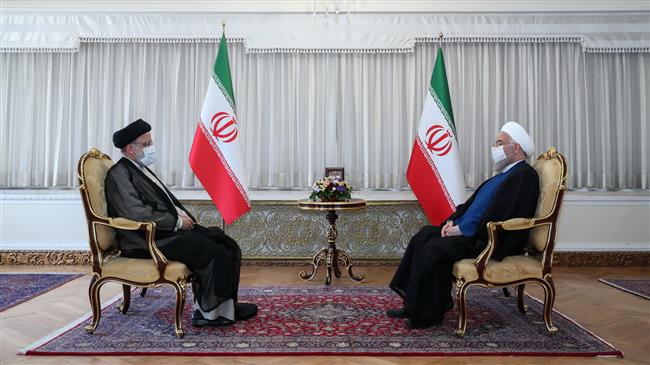

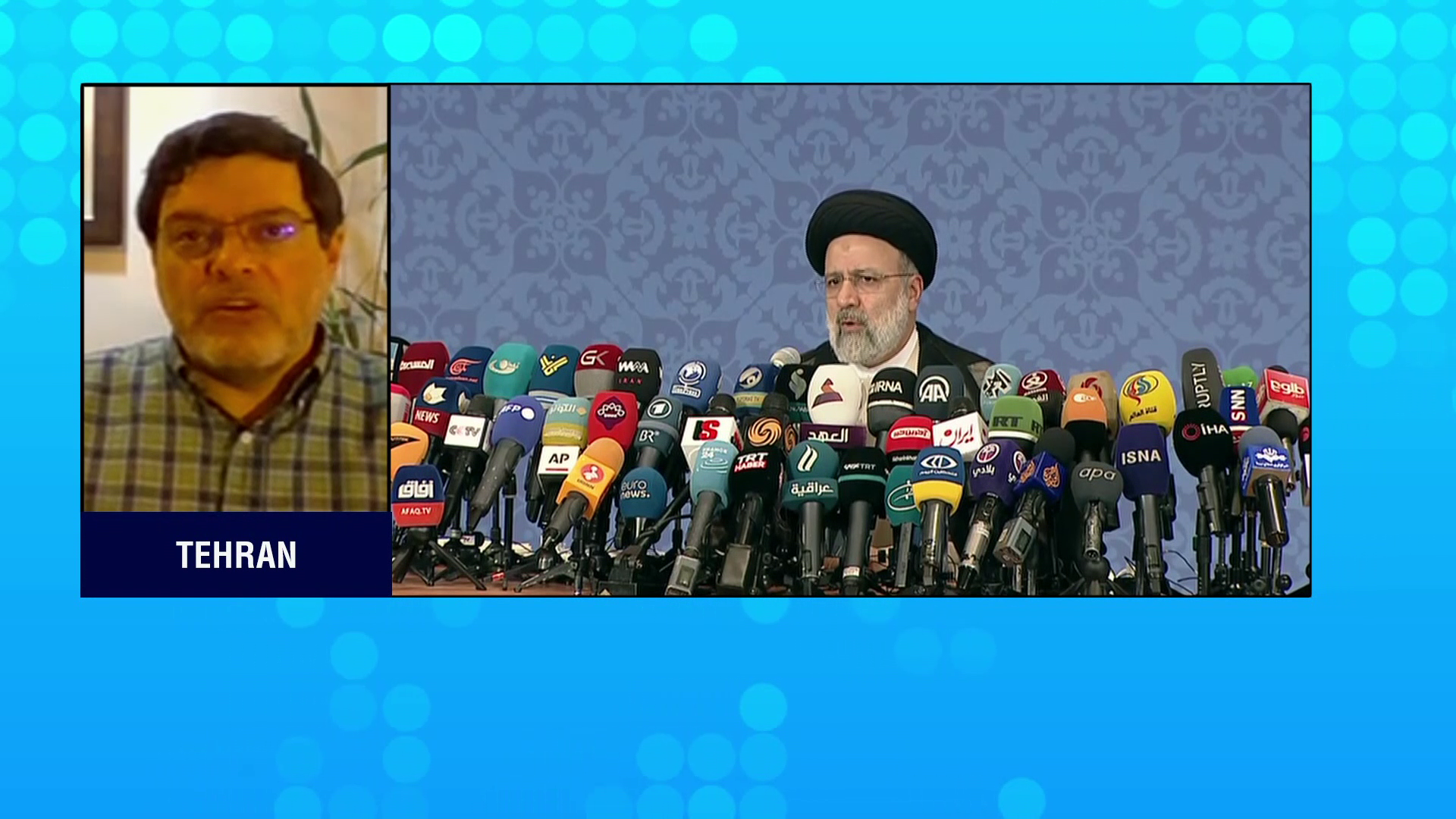
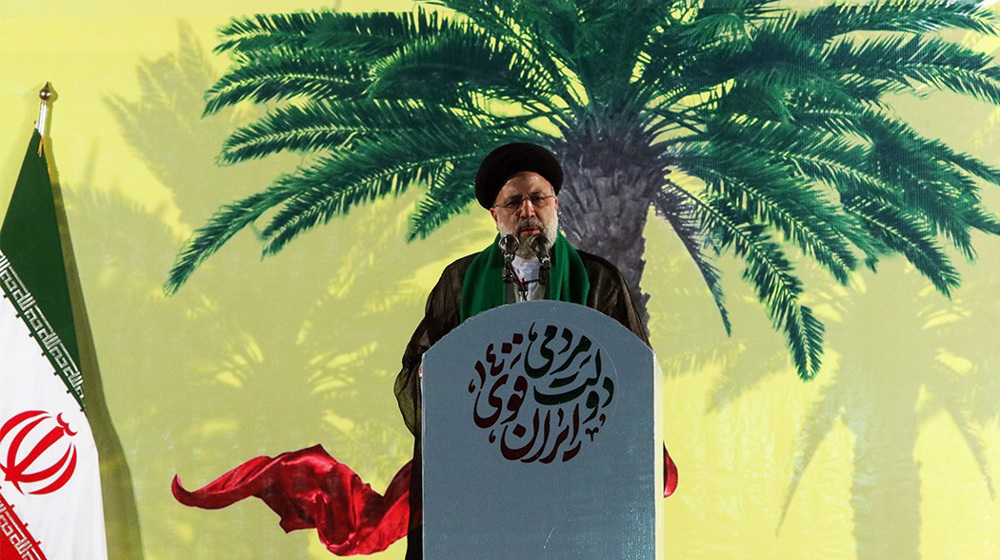
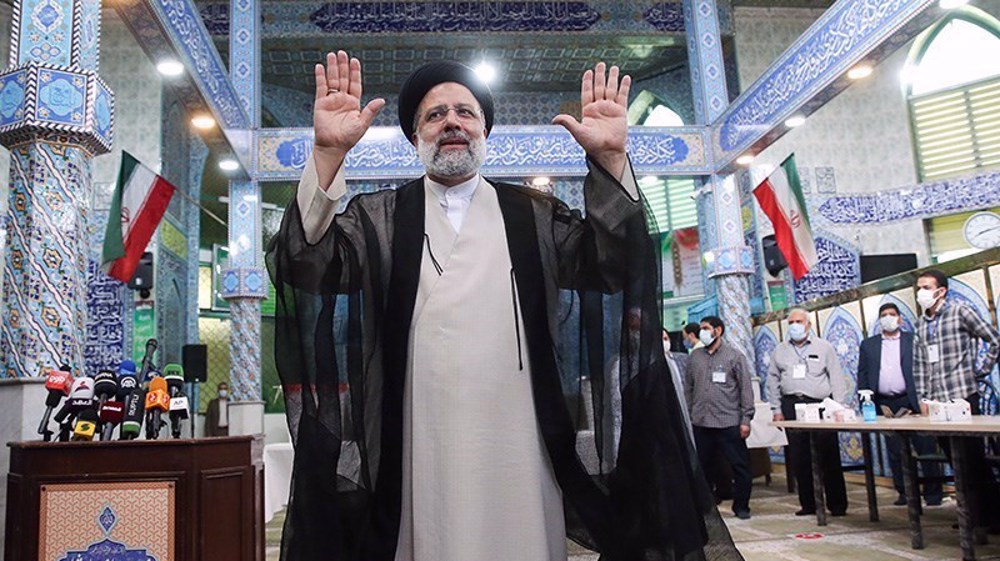
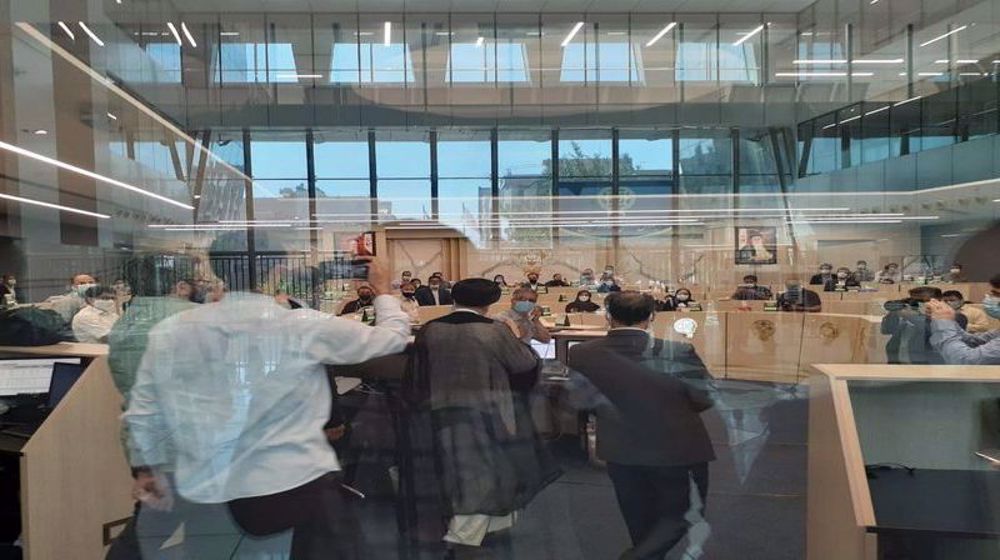

 This makes it easy to access the Press TV website
This makes it easy to access the Press TV website